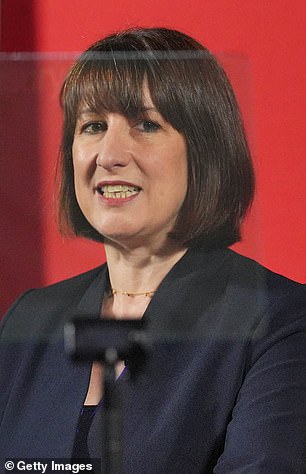Table of Contents
Things and Nonsense: Rachel Reeves
The public deserves honesty when it comes to the economy. Keir Starmer’s repeated claim, echoing Rachel Reeves, that the UK is facing the worst economic situation since the Second World War is nonsense.
This undermines the credibility of a government that is trying to position itself, both at home and abroad, as a firm hand at the helm of the state.
In case anyone needs reminding, Britain has been through a series of economic earthquakes since 1945.
During the Labour government of the 1970s, when sensible economics was overwhelmed by union power, inflation peaked at 25%. Over the course of that decade, food and drink prices rose by 300%.
That was a real cost of living crisis.
The UK subsequently fought a painful war to remain in the exchange rate mechanism in the 1990s, during which the bank rate rose to 13.88 per cent and citizens with mortgages handed back the keys to their homes with negative equity.
In 2008, the Great Financial Crisis crushed public finances and the Labour Party left the coalition government a legacy of deep recession. Since then, COVID-19 and the invasion of Ukraine have contributed to aggravating the agony.
Labour is keen to paint the bleakest picture as it prepares the country for tax rises in the autumn.
The reality is that the economy is in the best shape since Covid.
Reeves slams alleged corruption surrounding pandemic contracts.
You can hardly blame Boris Johnson and Co. for a catastrophe that began in China and for their handling of a crisis that is comparable to that of almost every other Western democracy.
What the Chancellor should recognise is that, despite the Truss episode, the UK is emerging from recession strongly. Indeed, so far this year, Britain is the fastest growing economy in the G7. Inflation has stabilised at the 2% target and, if the Bank of England does its part, the bank rate, currently at 5.25%, could be cut by a quarter of a percentage point on Thursday.
The strength of the UK economy is evident in the latest banking results.
Lloyds has slashed its provisions and NatWest, the country’s biggest lender to small and medium-sized businesses, reports little strain, except in some parts of the hospitality industry.
It has demonstrated its confidence by acquiring Metro Bank’s mortgage portfolio for £2.4bn, reinforcing its role as the country’s second-largest player in mortgage lending.
New chief executive Paul Thwaite is remarkably upbeat about the outlook, raising his forecasts and moving quickly to eliminate remaining state ownership, which has fallen sharply to 19 percent.
An improved dividend makes further placement of shares in institutions likely.
Amid the optimism, public finances might seem like the exception that requires drastic action. The idea that somehow the great ship of state is about to hit the rocks also needs to be corrected.
There is much to fix, including potholes, waiting lists for the National Health System and prison overcrowding, among other things. However, it is not clear that the solution is simply to throw money at the problems.
Among the main reasons for the £20bn black hole uncovered by Reeves is Labour’s refusal to keep pace with public sector pay and to appease unions by giving in to inflationary demands that could potentially keep interest rates higher than necessary.
The curious thing about Reeves’ hasty audit of public finances is that it is being carried out by the Treasury.
This amounts to the height of hypocrisy after a King’s Speech which attempted to plug Liz Truss’s loophole by promising there would be no fiscal event without scrutiny from the Office for Budget Responsibility.
Discarding scrutiny for political reasons is precisely what the Chancellor is doing.
Britain’s public finances are not very pretty, but compared to those of our G7 allies (with the exception of Germany), they are pretty perfect.
In fact, it is possible to argue that with a rapid series of interest rate cuts and faster growth increasing tax revenues, there is no need for new taxes.
Don’t expect to hear that from world traveler Reeves on Monday.
DIY INVESTMENT PLATFORMS

AJ Bell

AJ Bell
Easy investment and ready-to-use portfolios

Hargreaves Lansdown

Hargreaves Lansdown
Free investment ideas and fund trading

interactive investor

interactive investor
Flat rate investing from £4.99 per month

Saxo

Saxo
Get £200 back in trading commissions

Trade 212

Trade 212
Free treatment and no commissions per account
Affiliate links: If you purchase a product This is Money may earn a commission. These offers are chosen by our editorial team as we believe they are worth highlighting. This does not affect our editorial independence.

